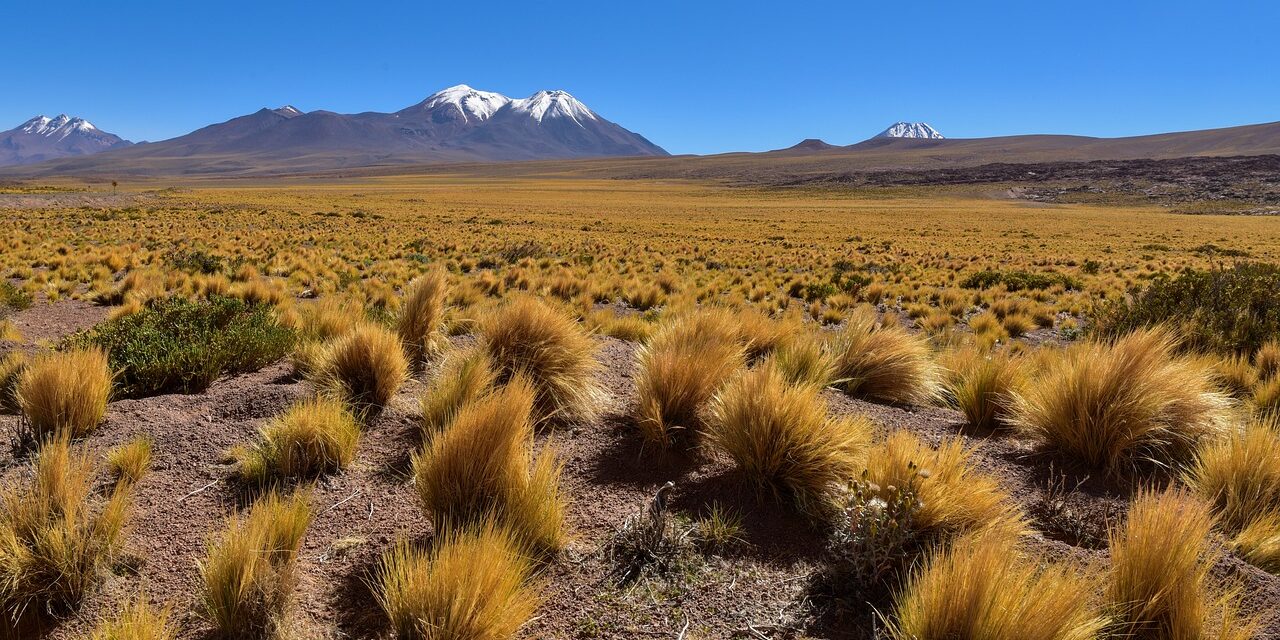National identities are born through people and places, food and literature, love and struggle.
On Chile’s national day, we honor two of its greatest literary figures, who not only conjured the country’s spirit through their words but also forged the country’s diplomatic path as ambassadors.
Chile, famously known as the “Land of Poets,” has gifted the world with Gabriela Mistral and Pablo Neruda, whose profound works have transcended its borders. Their contributions as Nobel Prize-winning poets and diplomats highlight Chile’s cultural and intellectual impact.
As we celebrate Chile’s independence, we also pay tribute to the enduring legacies of these literary giants.
Gabriela Mistral (1889–1957)
The self-educated Mistral began her career as a teacher, working toward improving educational access for women and children in Chile, a cause inspired by her own struggles with formal education in her youth.
This experience in educational administration led Mistral to pursue a diplomatic career, assisting Mexico with its post-revolution educational reforms in 1922 and later serving as Chile’s representative to the United Nations in 1953.
Throughout her life, Mistral pursued her literary endeavors alongside her educational and diplomatic work. Her writings often featured nature, children, and women as central motifs.
Chile’s Land
Let’s dance on the land of Chile,
lovely as Rachel, as Leah,
the land that breeds a people
sweet of heart and speech.
The greenest land with gardens,
the fairest land with wheat,
the reddest land with vineyards,
the gentlest to our feet!
Our laughter’s made of its rivers,
our cheeks of its dusty earth.
Kissing the feet of the dancers
it groans like a mother in birth.
It’s beautiful, and for its beauty
we’ll dance its fields along,
it’s free, and for its freedom
we’ll drench its face in song.
Tomorrow we’ll hew and quarry,
tend to the trees and plants,
tomorrow we’ll build the cities,
today just let us dance!
Mistral won the Nobel Prize for Literature in 1945, becoming the first Latin American writer to do so. The official description of her award was “for her lyric poetry, which, inspired by powerful emotions, has made her name a symbol of the idealistic aspirations of the entire Latin American world.”
Pablo Neruda (1904–1973)
Despite his father’s objections, Neruda pursued a writing career from childhood, encouraged by many of his teachers in his hometown of Temuco.
Among these mentors was a young Gabriela Mistral, who was just beginning her career as an educator. Like Mistral, Neruda would go on to have an extraordinary international career while developing his literary legacy.
In 1926, Neruda took up a consular position in Rangoon, traveling around Southeast Asia on diplomatic missions. These experiences imbued his early works with the evocative and imaginative flair of the region.
Neruda later reunited with Mistral while serving as consul in Spain. During the Spanish Civil War, he corresponded with many other great writers, including Ernest Hemingway.
Despite frequent conflicts with Chile and other host countries over his political beliefs, Neruda was widely celebrated as one of the greatest living poets of his time.
Ode to the Artichoke
The artichoke
With a tender heart
Dressed up like a warrior,
Standing at attention, it built
A small helmet
Under its scales
It remained
Unshakable,
By its side
The crazy vegetables
Uncurled
Their tendrils and leaf-crowns,
Throbbing bulbs,
In the sub-soil
The carrot
With its red mustaches
Was sleeping,
The grapevine
Hung out to dry its branches
Through which the wine will rise,
The cabbage
Dedicated itself
To trying on skirts,
The oregano
To perfuming the world,
And the sweet
Artichoke
There in the garden,
Dressed like a warrior,
Burnished
Like a proud
Pomegranate.
And one day
Side by side
In big wicker baskets
Walking through the market
To realize their dream
The artichoke army
In formation.
Never was it so military
As on parade.
The men
In their white shirts
Among the vegetables
Were
The Marshals
Of the artichokes
Lines in close order
Command voices,
And the bang
Of a falling box…
Neruda was awarded the Nobel Prize in 1971 “for a poetry that with the action of an elemental force brings alive a continent’s destiny and dreams.”






